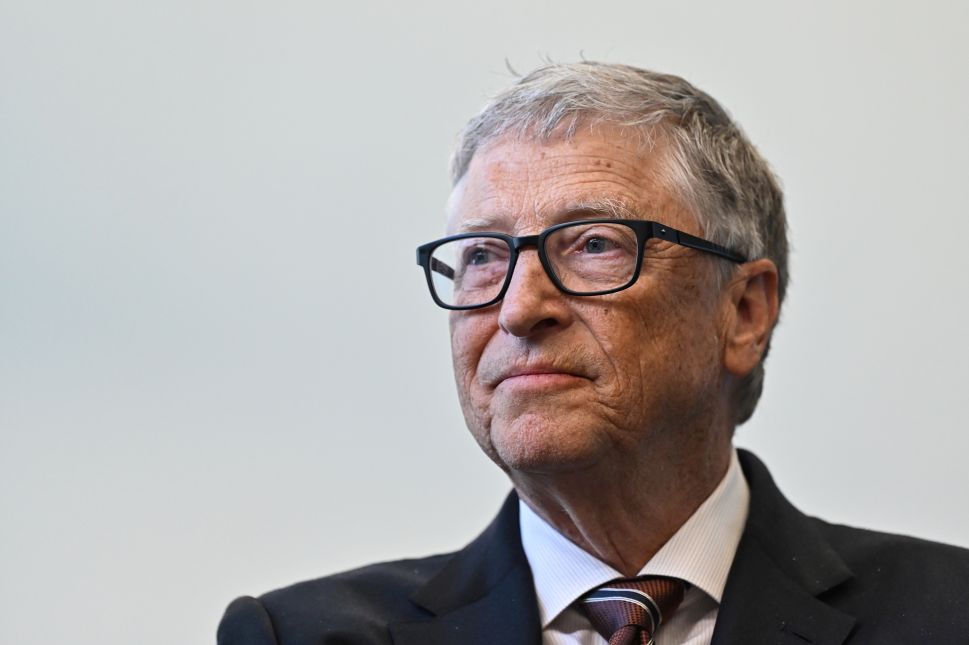To mark the 25th anniversary of the Bill and Melinda Gates Foundation, Bill Gates is announcing plans for its closure. The foundation, which has grown into the world’s largest charitable organization, will shut its doors by 2045 after spending down $200 billion of both its endowment and the remainder of Gates’ personal fortune, the philanthropist said in a blog post published today (May 8). Gates’ net worth currently stands at $112.5 billion. The foundation’s endowment stood at $77 billion at the end of 2024.
“Over the next two decades, we will double our giving,” wrote Gates, who will turn 70 in October. “There are too many urgent problems to solve for me to hold onto resources that could be used to help people.”
Founded in 2000 by the Microsoft co-founder and his former wife, Melinda French Gates, the foundation has distributed more than $100 billion to charitable causes. The couple have personally contributed over $60 billion, with an additional $40 billion donated by Warren Buffett. Over the next 20 years, the foundation will also receive the remaining 99 percent of Gates’ personal fortune.
Gates and French Gates had originally planned for it to wind down within 50 years of their deaths. But citing Andrew Carnegie’s famous 1889 warning that “the man who dies thus rich dies disgraced,” Gates now believes accelerating that timeline is the right move.
“I have spent a lot of time thinking about that quote lately,” wrote Gates. “People will say a lot of things about me when I die, but I am determined that ‘he died rich’ will not be one of them.”
Before it closes on Dec. 31, 2045, the foundation plans to intensify its focus on core initiatives. These include eliminating preventable deaths of mothers and children, alleviating poverty, and combating diseases such as polio, guinea worm, malaria, HIV and AIDS, measles and tuberculosis.
The largest “sunset” foundation
A foundation with a set expiration date is far from typical—especially one as massive as the Gates Foundation.
“A relatively small percentage, I’m going to say less than 10 percent in terms of the number of foundations, are set up to be ‘sunset’ foundations,’ Leslie Lenkowsky, professor emeritus at Indiana University’s Lilly Family School of Philanthropy, told Observer. “There’s no question at all that the Gates Foundation is going to be by far the largest foundation ever to sunset,” he added.
Foundations built to last indefinitely may benefit from more time to pursue long-term goals, but those designed with a clear end date can often move faster, take bolder risks and avoid the bureaucratic inertia that tends to accumulate over time, according to Lenkowsky.
Gates seems to agree. “It allows us to do a lot more because we’re not trying to steward our money for some weird legacy thing,” the billionaire told The New York Times in an interview published today. “If we were trying to be a forever foundation, instead of being able to spend $9 billion a year, we’d have to drop down to spending like $6 billion a year.”
Even with an expanded budget, the Gates Foundation won’t be able to fully compensate for recent government cuts to international aid. Gates, who has previously criticized the Trump administration’s reductions in global health funding through agencies like the U.S. Agency for International Development (USAID), was especially direct in his comments about Elon Musk’s role in further diminishing that support. Musk, as head of the Department of Government Efficiency (DOGE), has overseen a sharp decline in foreign aid.
“He could go on to be a great philanthropist,” Gates told The New York Times. “In the meantime, the world’s richest man has been involved in the deaths of the world’s poorest children.”
Whether Musk—or any billionaire—will step in to fill the void left by Gates remains to be seen. But the coming closure of the Gates Foundation will mark more than the end of an institution; it signals the close of a distinct chapter in philanthropy. “Closing the Gates Foundation really brings closer an end of an era for philanthropy,” said Lenkowsky.

